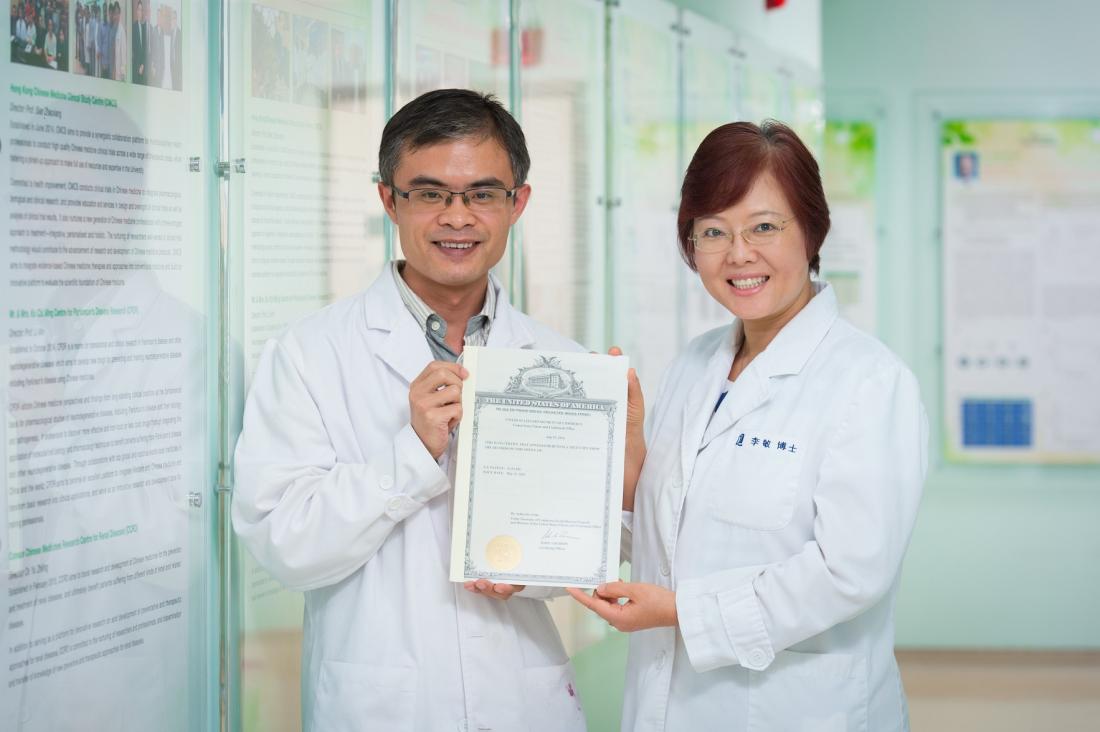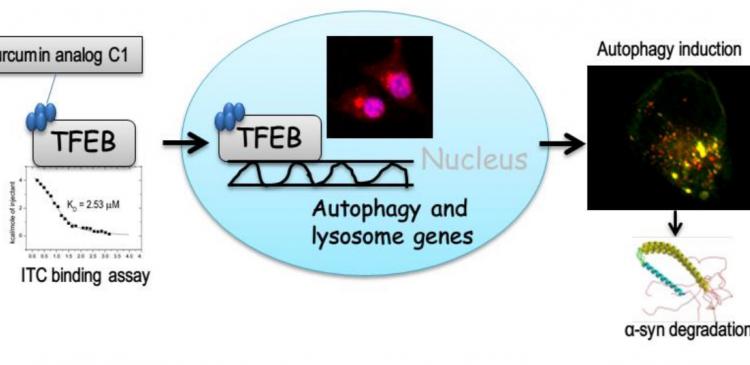Professor Li Min (right) and Dr Song Juxian receive a US patent for their discovery of novel autophagy regulators for treatment of neurodegenerative diseases.
A research team led by Professor Li Min, Director of the Teaching and Research Division (CMTR), and Director of the Mr and Mrs Ko Chi Ming Centre for Parkinson’s Disease Research under the School of Chinese Medicine (SCM) of Hong Kong Baptist University (HKBU), discovered a novel autophagy regulator for the treatment of neurodegenerative disorders such as Alzheimer’s and Parkinson’s disease. The research team was granted a US patent for the study, and related findings were published in the prestigious academic journal Autophagy. The team will explore further collaboration with a potential biotechnology company in the hope of applying such knowledge in new drug development.
Autophagy – how your body detoxifies and repairs itself – is a lysosome degradation pathway for material and energy metabolism and recycling, and plays vital roles in the growth, development and homeostasis of cells. It is essential to the functioning of human cells not only because it facilitates cell renewal and delays ageing, such a mechanism can also help protect the human body by killing bacteria and viruses when a person is infected. In addition, it can sustain the body’s functioning by recycling material and energy under adverse conditions like starvation.
Dysregulation of autophagy has been linked to the pathogenesis of a number of diseases, such as neurodegenerative diseases, cancers and diabetes. Japanese biologist Professor Yoshinori Ohsumi was awarded the 2016 Nobel Prize in Medicine for his discovery of autophagy mechanisms. Such a discovery not only helps identify the causes of diseases and develop effective medication therapies, but also implies that there is a great potential for the development of small molecule autophagy regulators in treating different human diseases..
Professor Li Min and Dr Song Juxian, Research Assistant Professor of CMTR have been actively engaged in identifying and developing novel autophagy regulators derived from Chinese medicines for the prevention and treatment of neurodegenerative diseases, including Parkinson’s disease and Alzheimer’s disease. By screening a series of synthesised curcumin derivatives, they found a compound that directly binds to and activates the transcription factor EB (TFEB), a master regulator of autophagy and lysosome biogenesis. According to the research findings, this TFEB activator potently degrades the neurotoxic protein aggregates including the amyloid precursor protein and Tau in Alzheimer’s disease and alpha-synuclein in Parkinson’s disease in neuronal cells and animal models by inducing autophagy.
Professor Li Min said: “The development of natural autophagy regulators will further help develop new drugs for the treatment of related neurodegenerative diseases. Many researchers in the field of autophagy are interested in this compound since it directly targets TFEB without inhibiting the mammalian target of rapamycin pathway. It will not affect the normal functioning of cells during the eliminating process of the neurotoxic protein aggregates. In addition, this small molecule is orally effective and can be easily synthesised.”




